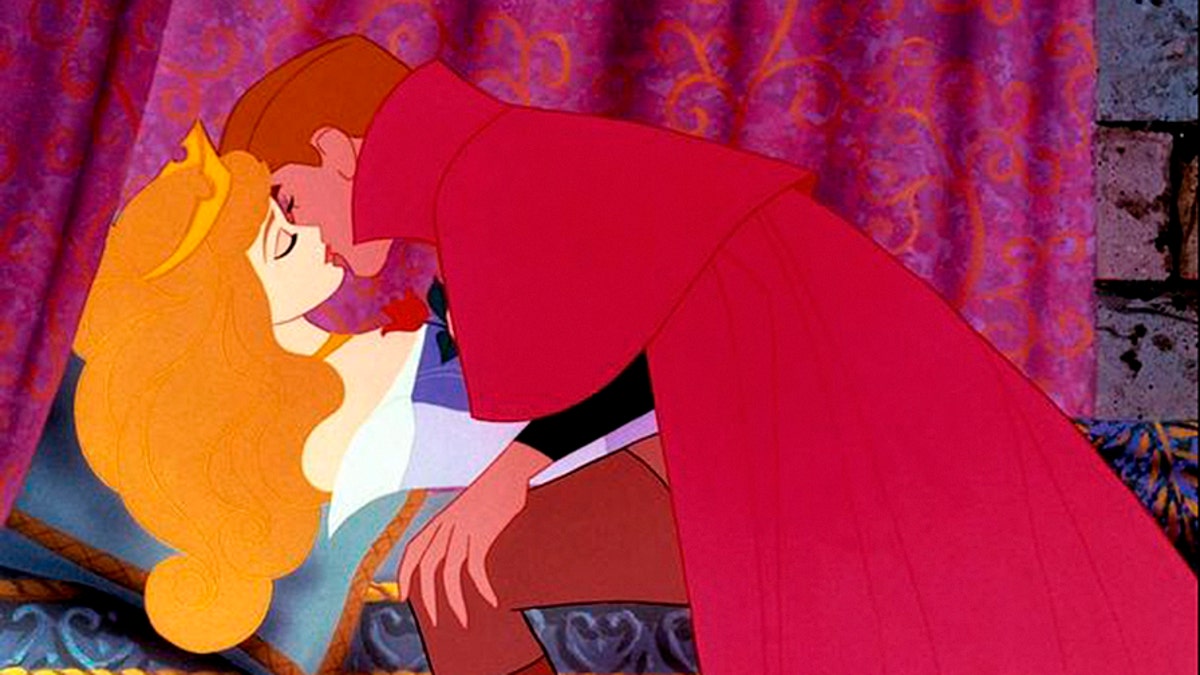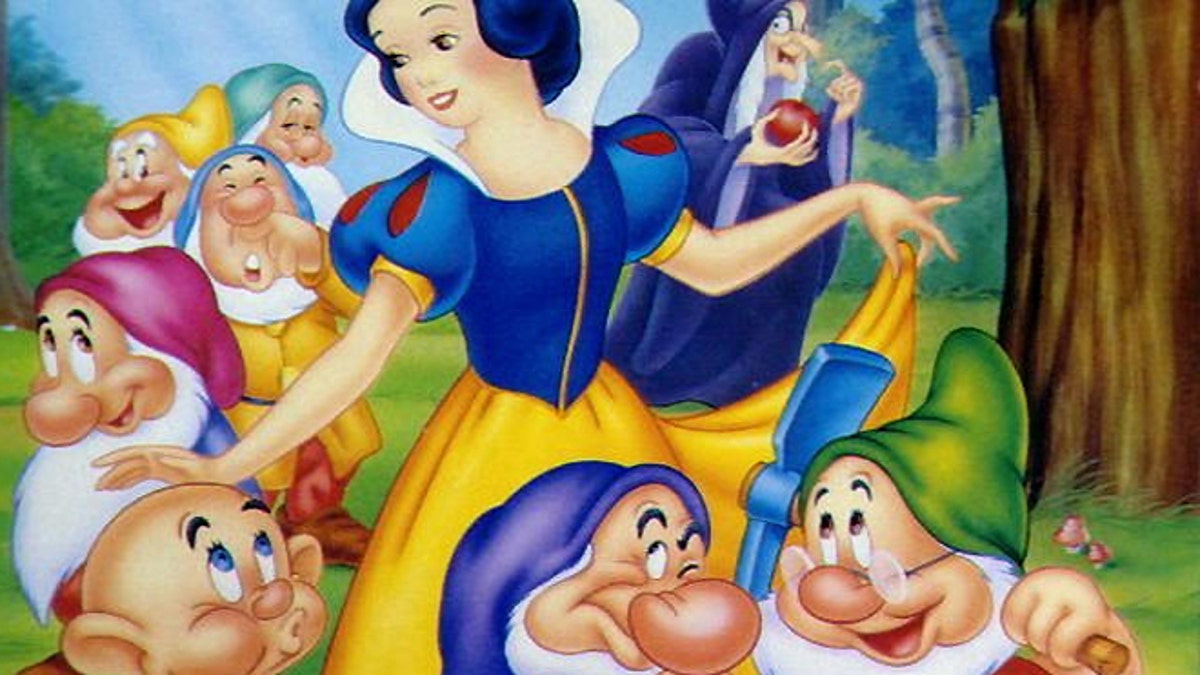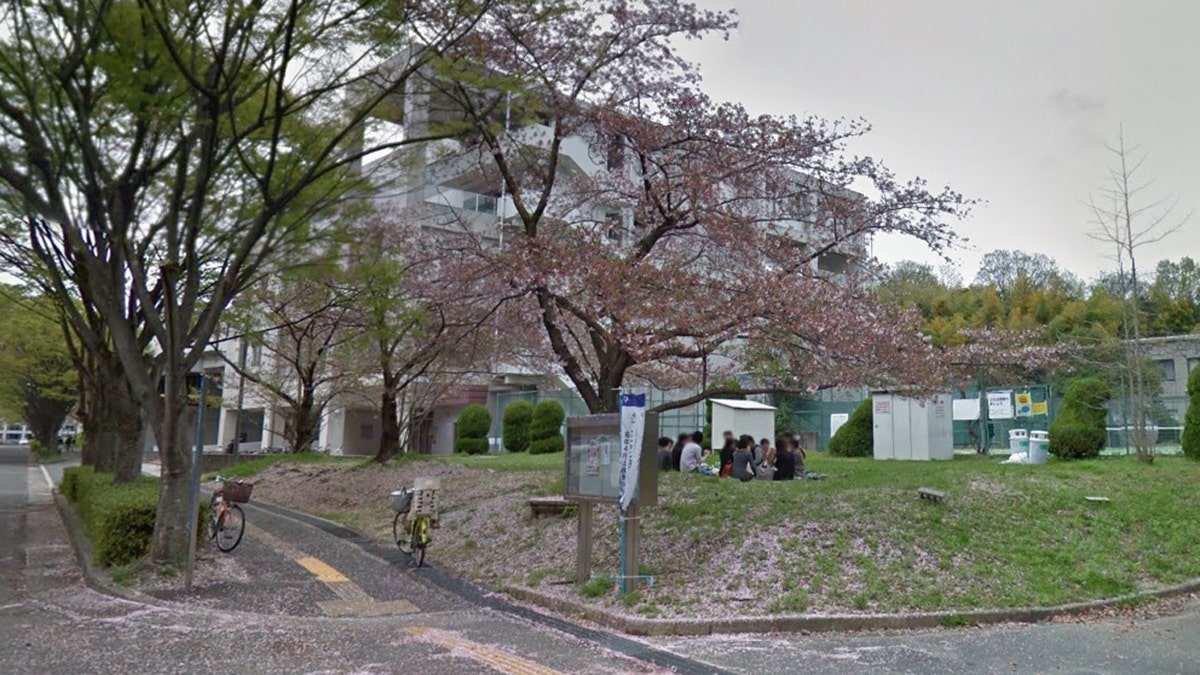
A professor said "Sleeping Beauty" and "Snow White" actually represent cases of sexual assault.
Prince Charming may not be so charming after all.
Disney’s fairytale princes are sexual predators, according to a Japanese gender studies and sociology professor.
Kazue Muta, an Osaka University professor and author of “Sir, That Love is Sexual Harassment!” a book on workplace sexual harassment, argued in December that princes from “Snow White” and “Sleeping Beauty” portray “quasi-compulsive obscene sexual acts on an unconscious partner.”
In other words, the feminist academic activist argues such fairytales allow sexual violence.
In a Dec. 11 tweet, Muta accused the princes of sexual assault with a link to a news story of a real case where a man was arrested for kissing a sleeping woman on a train en route to Osaka.

A prince kissing Snow White to wake her from a "sleeping death" is actually sexual assault, one professor says. (Walt Disney Productions)
The translation reads: “When you think rationally about 'Snow White' and 'Sleeping Beauty,' that tell of a ‘princess being woken up by the kiss of a prince,’ they are describing sexual assault on an unconscious person. You might think I’m ruining the fantasy of it all, but these stories are promoting sexual violence and I would like everyone to be aware of it.”
Muta’s comment brought a firestorm of reaction – support and criticism.
In the Disney versions of “Sleeping Beauty” the prince is led to kiss Princess Aurora by the fairies with the belief that he can cure her of her napping curse, “not motivated by his own pervy will,” SoraNews24 pointed out in Japan Today.
While the “Snow White” version features a prince kissing an unconscious Snow White, SoraNews24 argues, Disney tries to “soften the act by establishing a prior relationship between them in which she and the prince fall in love at first sight.” (Also, Snow White had eaten a cursed apple and the prince's kiss wakes her from a "sleeping death.")
After the criticism was picked up by Yahoo! Japan, Muta responded with an article for the Women’s Action Network.
Muta argues that if someone doesn’t look at the fairytales critically, they are essentially saying sexual harassment is permissible.

Students sitting outside of Osaka University campus in Japan. (Google maps)
“There were many critical replies that state ‘Because the princess and prince lived happily ever after in the end, there is a presumptive consent regarding the kiss, so there’s no problem,’” Muta wrote. “However, this understanding of it is actually dangerous. This kind of thinking fabricates the mindset of ‘the ends justify the means,’ and to what extent does this allow sexual violence to occur?”
She expounded on the tweet, arguing that beyond the Disney versions, and within Japanese fairytales, the male figures kiss “without confirming consent,” so they’re actually committing sexual crimes.
FROM ANTI-TRUMP PROFESSORS’ MOUTHS, 2017’S MOST EXPLOSIVE QUOTES
Muta adds that many violent sexual crimes seem as if they “mimicked” the actions of male protagonists in fairytales and connected her argument to the #MeToo hashtag, highlighting sexual harassment which has been found to be especially rampant in Hollywood.
“Under such circumstances, changing society's recognition of sexual violence is not an easy thing to do," Muta said. "However, we must say these things loudly and boldly."
